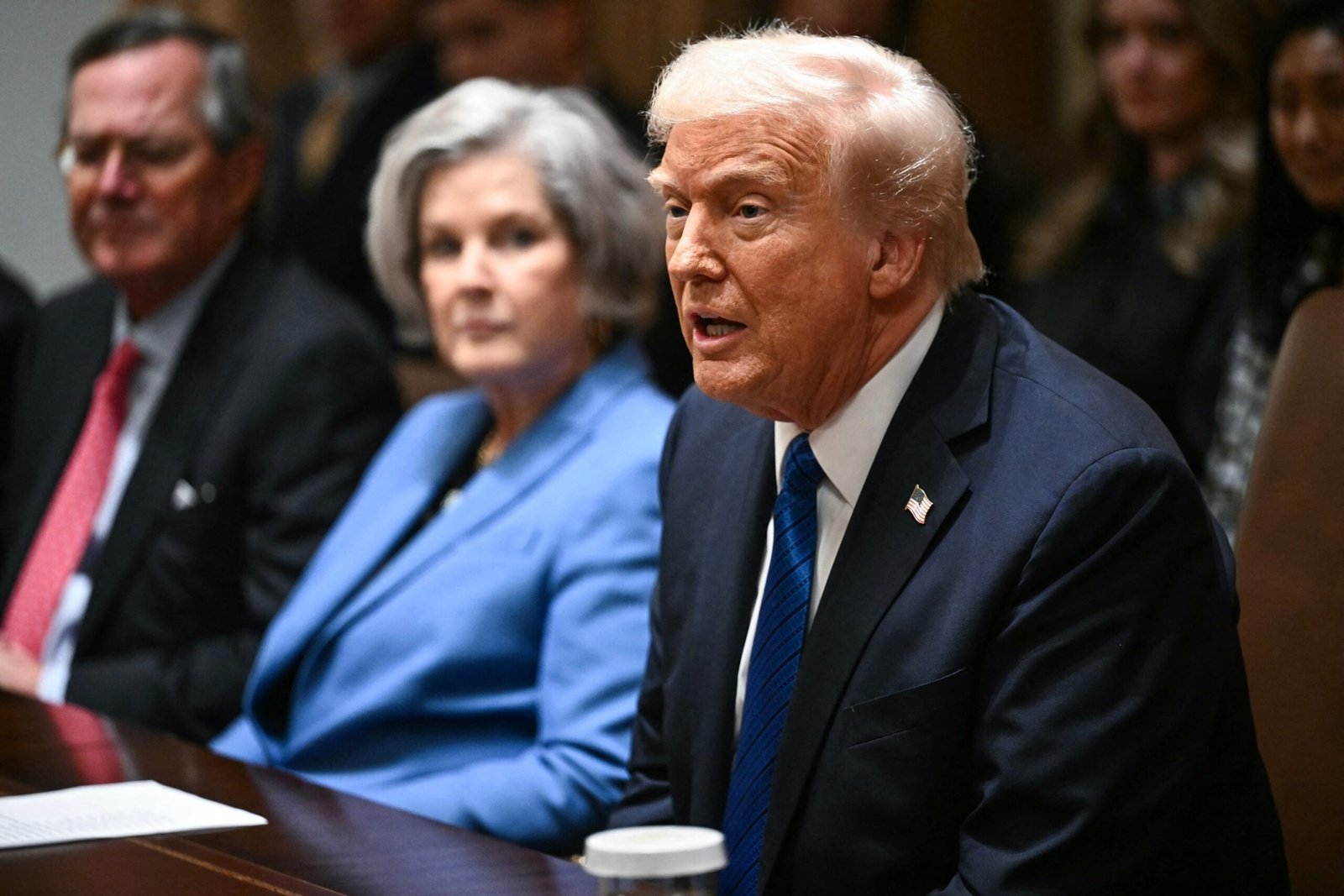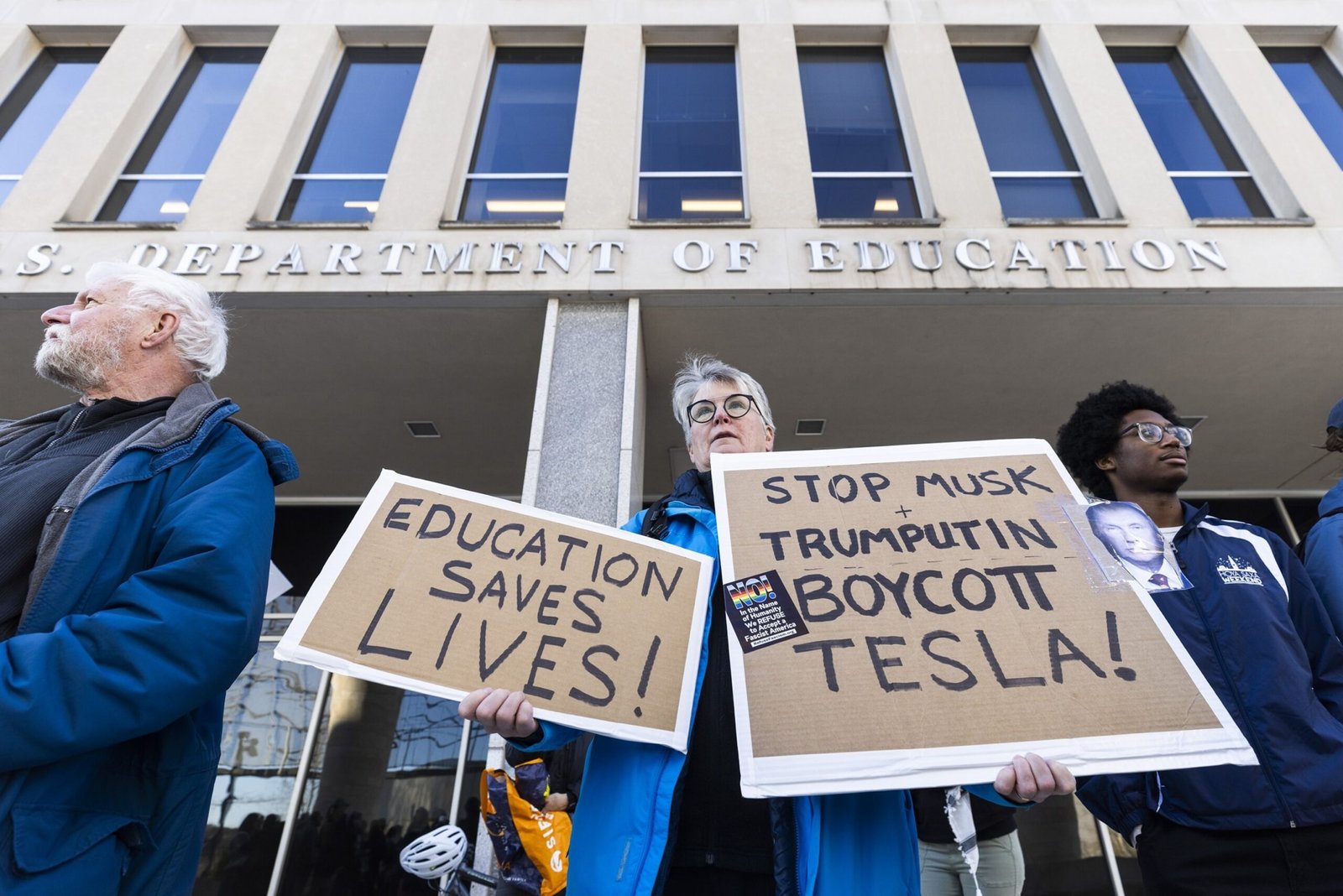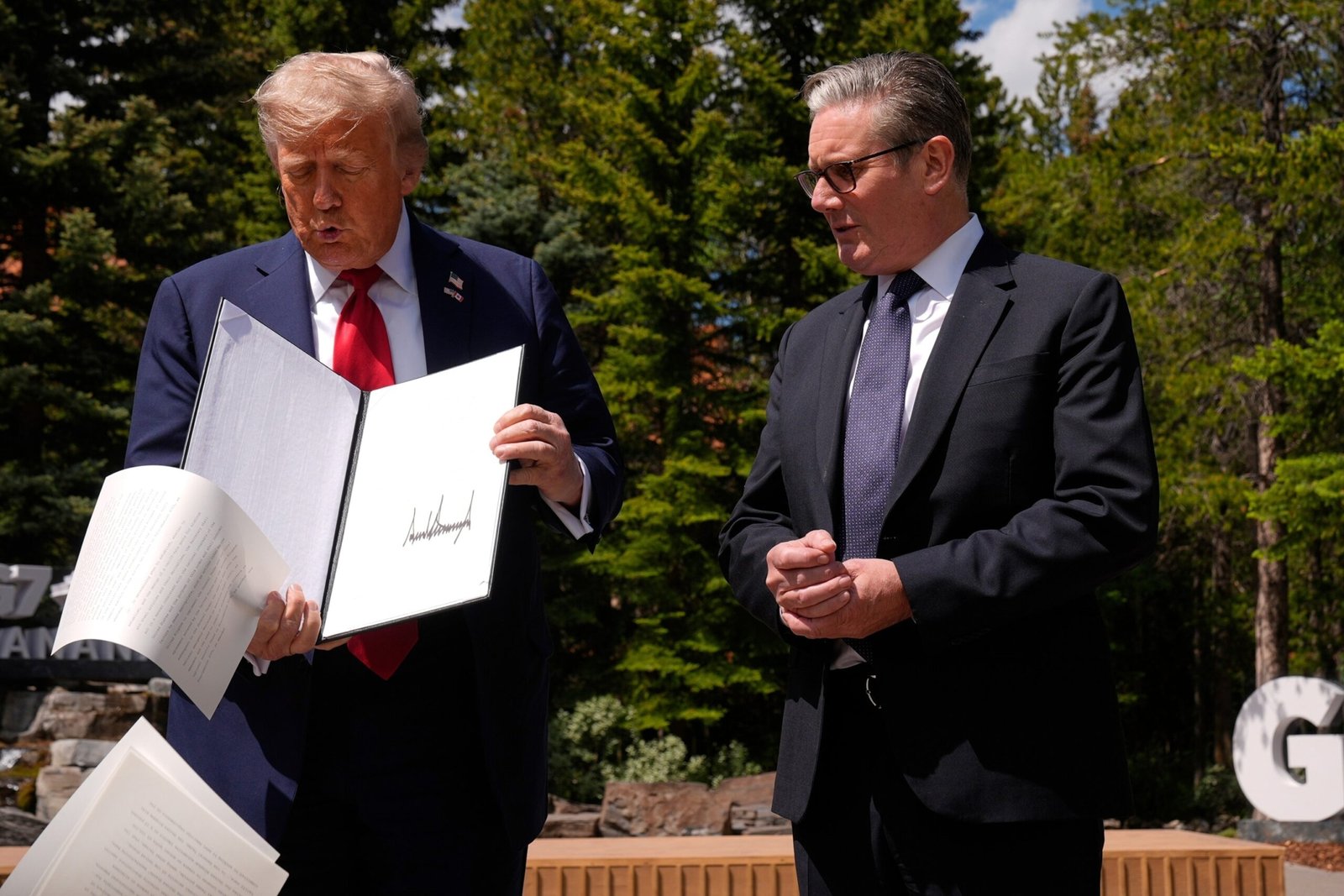Trump minimizes the Chat group of Yemen’s war plans: ‘It can happen’

President Donald Trump minimized on Tuesday the use of a group of signals, according to reports, among the senior officials to discuss an American attack against Houthis in Yemen, which brought him to light when a journalist, Jeffrey Goldberg, of the Atlantic, was “unnoticly” added to the chat.
Trump said that “there was no classified information as I understand it,” when he was splashed with questions about the setback reported during a meeting with his ambassadors in the White House. Trump came to the defense of the national security advisor Michael Waltz and promoted the military operation as a success.
“They used an application, if you want to call it an application, that many people use. Many people in the use of government, many people in the media use,” Trump said.

President Donald Trump speaks next to the chief of Cabinet, Susie Wiles while meeting the American ambassadors in the White House Cabinet room in Washington, on March 25, 2025.
Mandel and/AFP
Goldberg, the chief editor of the Atlantic, wrote in an article published on Monday that was added to a group chat in the application of commercially available signal in which officials, including the Secretary of Defense, Pete Hegseth and Waltz, were discussing attacks on strikes that prevent Houthi militants in Yemen. Goldberg said he was apparently added to Waltz’s chat.
The story in the Atlantic only described the operational part of the message chain, but did not disclose details.
When asked if someone would be fired as a result of the fire storm, Trump replied: “We have sought more or less. It is quite simple, to be honest … it is something that can happen. It can happen.”
Trump attacked both Atlantic and Goldberg and doubled the success of air attacks.
“Well, I mean, look, we look at everything and, you know, they have made a big problem of this because we have had two perfect months,” Trump said.
Waltz said he had technical experts, instead of the FBI, investigating the matter and told Trump: “We are going to keep everything as sure as possible. Nobody in his national security team would never put anyone in danger.”

President Donald Trump meets American ambassadors in the White House Cabinet Room in Washington, on March 25, 2025.
Mandel and/AFP
The Atlantic retreated against Trump’s claims.
“The attempts to belittle and discredit the Atlantic, our editor and our reports follow an obvious book book by elected officials and others in power that are hostile to journalists and the rights of the first amendment of all Americans,” said the magazine in a statement on Tuesday night. “Our journalists continue to inform without fear and independently the truth in the public interest.
“Jeffrey Goldberg received information about the information and the discussion of military planning among the main national security leaders of the country when he was inadvertently added to his not sure messaging group,” he added. “This is impressive, and was confirmed yesterday by the National Security Council.”
Democrats in Capitol Hill faced the administration for the incident throughout Tuesday.
Representative Seth Maulton, D-Mass., A veteran sailor, said during a press conference that the national security chat group “put American lives at risk.”
Moulon said Trump’s administration officials are lying on the incident, which “is not in the leadership manual for our armed services.”
“Oh, this information was not classified? Without even knowing the complete details, we know that the attack time for this operation was in the message. Let’s be clear: that is classified information. That is all you need to know,” he added.
The congressman acknowledged that “there is no excuse here, but there is not clearly any responsibility, and it is very clear that Secretary Hegesh, with how he is handling this, has no honor, makes no sense and has absolutely zero responsibility for his own actions.”
The minority leader of the House of Representatives, Hakeem Jeffries, asked Hegseth to be fired by the group chat.
“Pete Hegesh is the most unconditional defense secretary of American history,” he said in a statement. “His behavior surprises consciousness, risked American life and probably violated the law.”
The earlier Tuesday, the Democrats interrogated the director of National Intelligence Tulsi Gabbard and the director of the CIA, John Ratcliffe, about the use of the signal and the information discussed in the chat.
Intelligence officials, who testified as part of a previously scheduled hearing before the Select Senate Intelligence Committee, also stated that there was no classified information included in the message chain.

Director of National Intelligence, Tulsi Gabbard and director of the CIA, John Ratcliffe, testify before the Senate Intelligence Committee on “World Threats”, in Capitol Hill in Washington, on March 25, 2025.
Saul Loeb/AFP through Getty Images
Facing the questions of the Senate Democrats about why the information about sequencing or attack time, as reported by the Atlantic, would not be considered classified, Ratcliffe said that Defense Secretary Hegseth had authority to determine what was classified or not. Gabbard postponed such questions to the Department of Defense.
Ratcliffe also said that he believed that National Security Advisor Waltz intended for the chat to be “a mechanism to coordinate between the senior level officials, but not a substitute to use high or classified side communications for anything that is classified.”
Democratic senator Mark Warner, the vice president of the panel, criticized the incident as “careless” and said that others would have been fired for the same behavior. Warner also pressed the officials to share the messages with the legislators after they said they did not contain classified information.
“If there was no classified material, share it with the committee. You can’t have it both ways,” he said.
Republicans on the panel did not ask so many questions on the subject during the audience, which had focused on world threats. Although Senator Todd Young, a Republican from Indiana, said he would ask questions about the signal incident in a closed door session.

Classification Member, Senator Mark Warner speaks during an audience of the Senate Intelligence Committee on “World Threats”, in Capitol Hill in Washington, on March 25, 2025.
Saul Loeb/AFP through Getty Images
The officials of the White House National Security Council said that “they are reviewing” how Goldberg could have been added by error to the group chat of 18 members that included several of the main military officials of the Nation.
The press secretary, Karoline Leavitt, confirmed the review on Tuesday, but said “no” war plans “” were discussed. He added that no classified material was sent to the group signal chat.
“The White House lawyer’s office has provided guidance on a series of different platforms so that President Trump’s officials communicate as sure and efficient as possible,” he said.
“At this time, the thread of the message that was reported seems to be authentic, and we are reviewing how an inadvertent number was added to the chain,” said NSC spokesman Brian Hughes, in a statement, which was sent to ABC News after being published for the first time by the Atlantic.

National Security Advisor Mike Waltz speaks during a meeting with President Donald Trump and the United States ambassadors in the White House Cabinet Room in Washington, on March 25, 2025.
Win McNamee/Getty Images
The scope of the review, included if trying why high -level discussions were being carried out on military planning outside the official channels, it was not immediately clear from the Hughes statement.
Trump did not promise to change the procedure or completely cut the use of the signal within the administration as a result of the Fiasco.
“I don’t think it’s something we hope to use again. They may be forced to use it. It can be in a situation in which you need speed instead of gross security, and you can be forced to use it, but, in general, I think we probably don’t use it much,” he said.
Despite his effort to minimize the incident, President Trump repeatedly indicated that he does not like this means of communication, saying that he thinks it is better to be in the situation room of these conversations.
“Sometimes someone can enter those things. That is one of the prices you pay when you are not sitting in the situation room without phones, which is always the best, frankly,” Trump said.
“Look, if it were for me, everyone would be sitting together in a room,” Trump said later. “The room would have solid walls and lead roof and a lead floor. But, you know, life does not always allow you to do that.”
Fritz Farrowz Farrowz Farrowz Farrowz Farrowz Farrowz Farrowz Farrowz Farrowz Farrowz Farrowz Farrowz Farrowz Farrowz Farrowz Farrowz Farrowz Farrowz Farrowz Farrowz Farrowz Farrowz Farrowz Farrowz Farrowz Murray, Ivan Pereira and Meredith Deliso contributed to this report.







